Can You Sell a House in Foreclosure Georgia?
In brief, it’s possible to sell a house in foreclosure in Georgia. However, it’s crucial to secure a signed offer for your property prior to the auction date.
Selling A House In Foreclosure Georgia
Facing the threat of losing your property through foreclosure can be extremely stressful, particularly if you’re experiencing financial difficulties due to factors like job loss, divorce, medical expenses, or the passing of a loved one. Despite feeling powerless in such a situation, there is a viable option: selling your home before it goes to auction.
While it may seem daunting, selling a property in Georgia during foreclosure is feasible, provided the lender and bank are kept informed. In many states, banks are unable to proceed with foreclosure if there’s a genuine offer on the table. Homeowners must demonstrate the existence of such an offer and expedite the closing process.
Opting to sell your property in foreclosure rather than allowing it to be sold at auction offers numerous advantages. To explore these benefits and more, stay tuned until the conclusion of this guide!
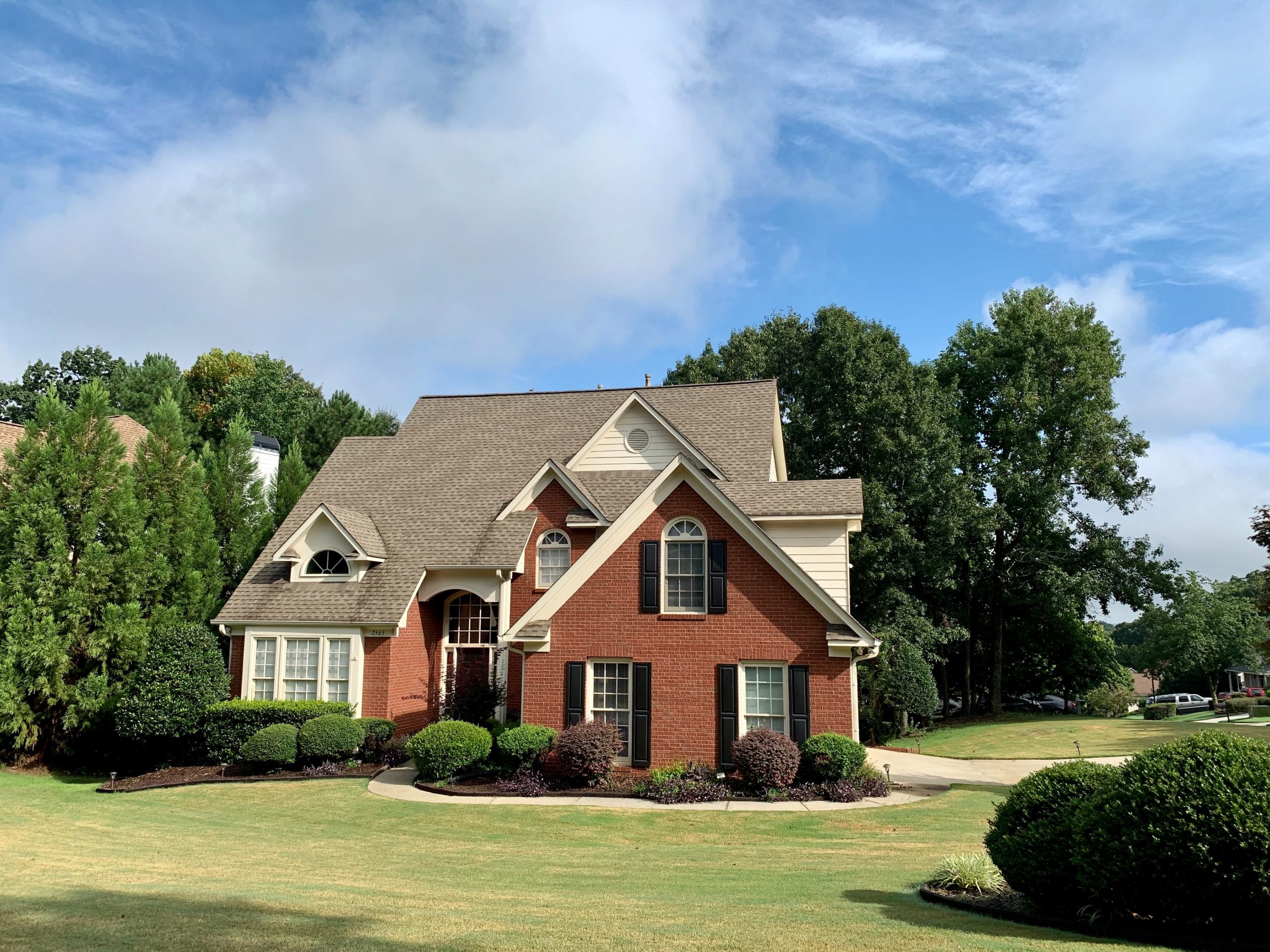
What is Foreclosure Georgia?
Foreclosure in Georgia refers to the mortgage company gaining ownership of your home through a legal procedure, essentially the bank repossessing the property due to failure to meet mortgage payments, a breach of the loan agreement.
Following foreclosure, the lender sells the house to recover its losses, leading to several repercussions:
1. Home Eviction: Losing your home is the most challenging consequence of foreclosure, requiring starting anew without any previously accrued equity.
2. Credit Score Impact: Foreclosure severely damages your credit score, making it challenging to secure housing, credit, or employment opportunities.
3. Deficiency Balance: If the proceeds from the foreclosure sale are insufficient to cover the entire mortgage debt, a deficiency balance remains. The lender may pursue legal action to collect this outstanding amount.
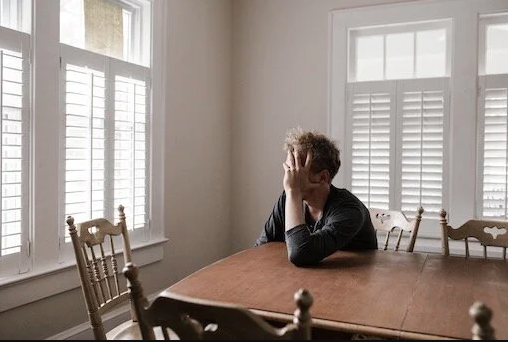
The Timeline of the Foreclosure Process Georgia
Understanding how to navigate the sale of a house amidst the Georgia foreclosure process begins with grasping its timeline. According to Forbes, this process typically unfolds in six distinct phases.
Phase 1: Initial Missed Payment
When a homeowner misses a payment, the lender may grant a 15-day grace period. Failure to pay within this timeframe incurs an additional late fee. Some lenders may also report the delinquency to credit bureaus.
Phase 2: Default
Continued missed payments lead to default, typically recognized by lenders after 30 days of non-payment. Subsequent actions depend on whether the foreclosure process is judicial or non-judicial.
In a judicial process, which occurs when the mortgage lacks a “power of sale” clause, the case proceeds through the state’s court system. Conversely, in a non-judicial process, the lender can foreclose without a court order.
Phase 3: Notice of Default or Foreclosure Lawsuit
For non-judicial foreclosures, homeowners receive a Notice of Default (NOD) detailing the amount owed, including mortgage, late fees, and foreclosure costs, with a 90-day window for repayment. Homeowners may negotiate a new repayment plan if unable to pay the full amount.
In judicial foreclosures, the lender files a lawsuit, requiring an immediate response from the Georgia homeowner to avoid a default judgment in the lender’s favor. Legal counsel may be sought, and the case proceeds to trial.
Phase 4: Pre-Foreclosure
The period between receiving the NOD and the foreclosure auction constitutes pre-foreclosure. Homeowners can settle debts, negotiate relief plans, or explore special payments to prevent foreclosure. If repayment isn’t feasible, selling the property becomes a viable option, often recommended during this phase.
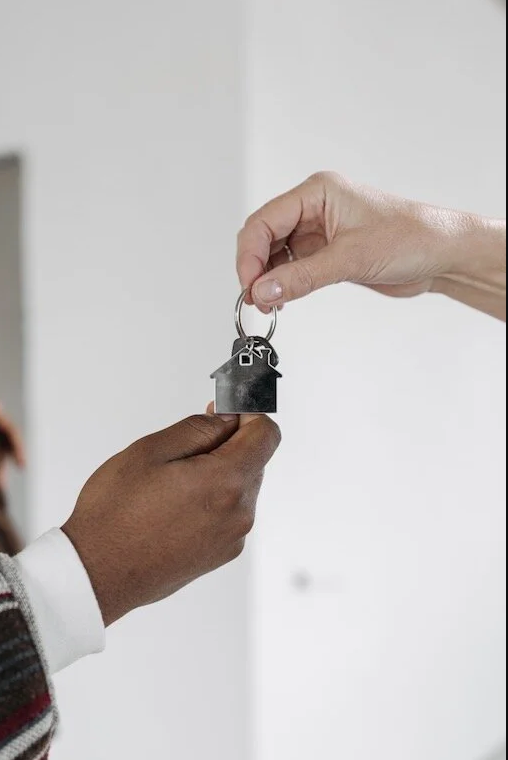
Phase 5: Notice of Sale
When the homeowner defaults on payments during the pre-foreclosure phase, the lender will publish a Notice of Sale in the local newspaper. The duration between the Notice of Sale and the foreclosure auction can range from two to three months, though usually shorter.
During this period, the homeowner can still sell the property, but time is crucial to avoid foreclosure.
Stage 6: Home Eviction
Following foreclosure, the homeowner will receive an eviction order. Typically, occupants are given only a few days to vacate the premises.
If they refuse, local authorities or the sheriff in Georgia will intervene, compelling them to leave and potentially impounding their belongings if necessary.

Can You Sell a House in Foreclosure Georgia?
Yes. You can sell your Georgia home in foreclosure, but unlike selling a typical property, you are bound by time constraints considering the bank wants paid.
Selling a house while facing foreclosure has many advantages, and they are as follows:
- Your credit report won’t have a foreclosure record. Usually, a foreclosure stays on your credit record for seven years. That means you will have difficulty securing loans— a huge problem if you need money for medical procedures, etc.
- You can buy another property sooner. If you have a foreclosure on your credit history, it would be difficult to apply for a new mortgage. Selling your home would help you avoid this and you will secure new housing right away.
- There won’t be any deficiency balance. As mentioned earlier, the bank may ask you to pay for a deficiency balance if the proceeds of the property couldn’t cover the mortgage and other fees. If you sell your home during the foreclosure process, you’ll get enough money to pay the mortgage, especially if you hire a great real estate agent.
Note, however, that when you sell your home while facing foreclosure, everyone has to be on board. By this, we mean that if you have a co-owner, the decision should be made by both of you, not just one person.
Also, you have to ensure that you have realistic expectations when you sell your home.
The goal is to pay off what you owe to your mortgage company by selling the house. But if the market value of the property is way less than what you owe, you may still face problems even after the sale. This is when you can explore a short sale. We discuss a short sale later in this article.
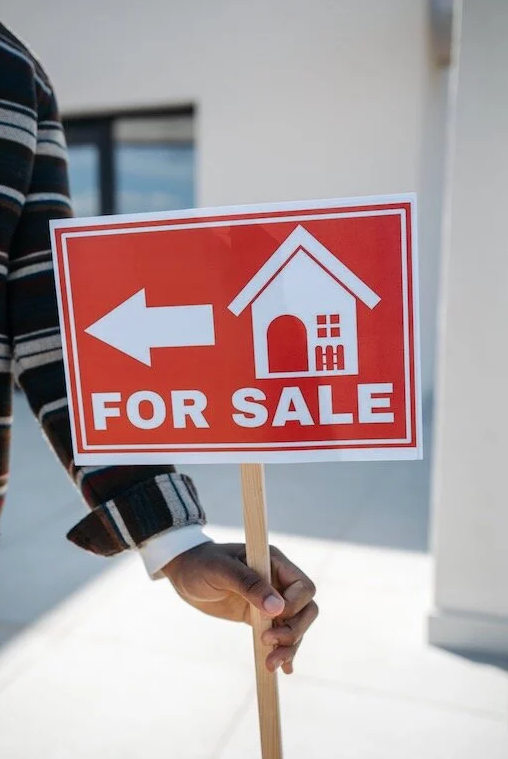
How Much Time Do You Have to Sell Your Home Before Losing it to Foreclosure Georgia?
Determining the precise timeframe before you face foreclosure on your Georgia property is complex, as it depends on various factors like your loan servicer, the foreclosure procedure type (judicial or non-judicial), and state regulations.
Typically, the foreclosure process can take from six months to a year. Selling your home prior to auction increases your chances of securing a favorable offer.
How Long Does it Take to Sell a Home in Foreclosure Georgia?
How long it takes to sell a home in foreclosure is similar to the timeline of selling a typical Georgia property. If the real estate market is hot, homeowners can sell their property in a few months or less.
However, you have to remember that the timeline of selling a property is affected by several factors, not just the real estate market in your area.
The state of your property, the neighborhood, the skills of the real estate agent who’s helping you, etc., can also significantly impact the sale.
Nevertheless, here’s what to expect from the process with an agent: determine your home’s fair market value, set a price, market the house, negotiate an offer, and close the deal.
The only difference is that when you sell your house in foreclosure, you have to notify your lender that you are selling it and that you actually have an offer. You must prove this to show your lender you are not just delaying foreclosure.
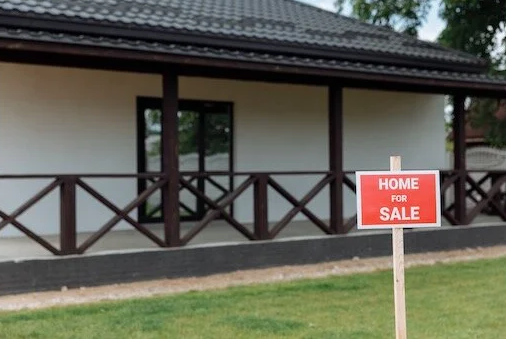
The Process of Selling a House in Foreclosure Georgia
Now that it’s clear that you can avoid foreclosure by selling your house, you should focus your time and energy on the actual sale. Given that the process is similar to selling a typical Georgia property, if you’ve sold a house before, this will be easier for you.
Here’s what you need to know about selling a property before it is foreclosed.
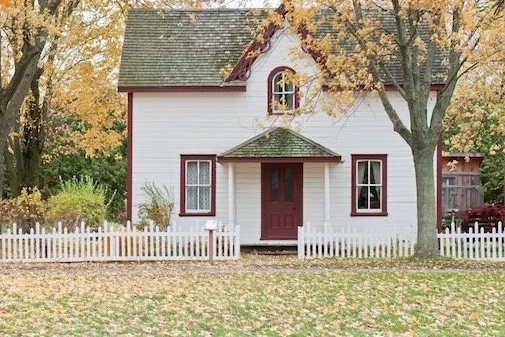
1. Find Out How Much the Home is Worth
To find out how much your property is worth, the best step to take is to have it appraised. But if you cannot find an appraiser given the time constraint, most homeowners suggest using online tools or asking for the help of a real estate agent that is well-versed in the financial aspects of home selling.
2. Set an Asking Price
Based on the appraised market value of your property, set an asking price. Note that this is not as easy as setting a price of a typical home.
For starters, in order to profit you must ensure that the price covers your unpaid mortgage payments, interest, and late fees. There are also the fees associated with selling a property like house repairs, staging, agent commissions, and closing fees, etc.
It’s better to set a fair asking price and potentially sell at a loss than to go too high and not sell at all.
3. Notify the Mortgage Lender
While it is difficult to talk to your lender during foreclosure, you must still notify them that you’re planning to sell the property and you’re already in the process of finding a buyer.
Most of the time, lenders support homeowners during property sales because it is much less work for the lender to have the owner sell the home before going to a foreclosure auction.
4. Find a Real Estate Agent
After you’ve notified your lender, you can seek the help of a qualified real estate agent. We recommend finding an agent to possible find a cash home buyer since the sale is under time pressure.
5. Get an Offer and Negotiate
Unfortunately when your property is facing foreclosure, there is not much wiggle room for negotiating. Not only are you on a tight timeline, you are facing an auction where you may make nothing on the house.
Do not wait to reach out to companies that buy houses for cash. Get multiple cash offers from reliable home buyers with your agent and compare not just on price but the services included such as closing costs covered, as-is sale, and no fees.
6. Let the Lender Know That You Have a Buyer
Once you’ve landed a cash offer, call your lender immediately and inform them so you can avoid foreclosure. As mentioned, the foreclosure will not proceed if the home has a legitimate offer.
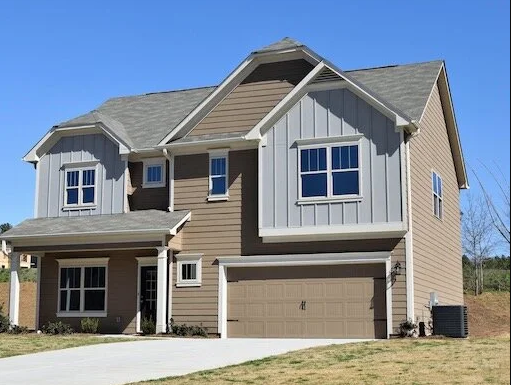
Lenders are open to allowing the sale of your house provided you demonstrate that the proceeds will cover both the mortgage payments and any late fees. The bank’s primary goal is to recover their funds without the inconvenience of auction proceedings, your realtor finding a all cash offer buyer is advantageous for all parties involved.
7. Close the Property Deal
When you have already notified your lender, you can close the deal with the buyer, declare to the bank that the home is sold, and pay what you owe the lender.
If you and your realtor are fortunate to receive a high cash offer, you may walk away with extra cash to start over. This is more likely when you start looking for offers sooner rather than later.
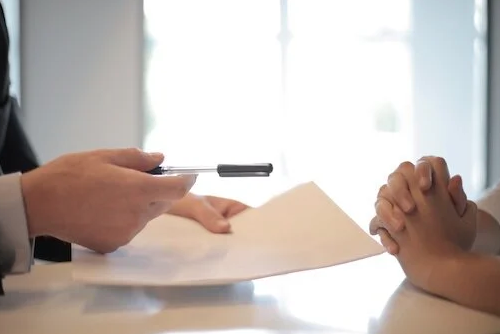
Challenges When Selling a Home in Foreclosure Georgia
Selling a Georgia house in foreclosure may be easy for some and hard for others due to several factors. It is crucial that you learn about the potential challenges you might face along the way so you can deal with them without taking much time.
The Owner is No Longer Living
Are you inheriting a property that is being foreclosed on? This situation can have many nuances depending on the probate process in your state. You may need to speak with multiple attorneys who can assist with legal matters related to both foreclosure and probate.
The Home is Tied to a Litigation
Another problem you may encounter if you want to sell the house in foreclosure is the possibility that it is tied to litigation— for instance, bankruptcy.
The timeline of the legal process for bankruptcy can be hard to predict, so the sale won’t be able to proceed right away. This will also be the case if the property is used as a lien.
The Owner is Selling Alone
Unless you are a real estate agent yourself, don’t try to sell your property For Sale by Owner. There are many hoops your property needs to go through before it is sold and doing it all alone with the pressure of possible eviction is overwhelming.
If you really want to sell the property fast, avoid any repairs, and not worry about closing costs, work with a real estate investor who offers cash for houses.

5 Options Other Than Selling a Home in Foreclosure Georgia
If you find yourself in financial difficulty and wish to avoid foreclosure on your Georgia home, there are several alternatives available, such as pursuing a short sale, seeking a loan modification, or exploring refinancing options. Typically, selling the property is considered a last resort for homeowners, only pursued when other alternatives, excluding short sales, have been exhausted.
1. Paying Missed Payments
You can get out of default if you pay what’s due. This includes interest, late fees, and penalties aside from the missed mortgage payments.
If you can find a way to get the money despite the financial hardship or bankruptcy you are going through, you’ll save yourself from all the hassle.
2. Loan Modification
Before thinking of selling your house to avoid foreclosure, talk to your lender for a possible loan modification. The lender may lengthen the term of your existing loan and shorten the rate, defer parts of your payments, or give you other options to help you pay back the loan.
This could delay your eviction, but make sure you submit the loan modification form at least 45 days before the foreclosure auction date.
3. Refinancing Before Foreclosure
If your lender agrees, they could replace your current mortgage with a new loan so you won’t lose your property. However, refinancing must occur before foreclosure.
You can expect changes in the loan structure, which can save you money. The new mortgage may have a lower interest rate and longer term. You may also be allowed to cash out any equity.
4. Get a Deed in Lieu of Foreclosure
Getting a Deed in Lieu of Foreclosure could turn over the ownership of your property to your lender.
This will absolve you of your debt and save your credit score because your property won’t be foreclosed. However, despite not having to make any payments, you would still lose your property.
5. Short Sale
A short sale means selling your home for less than what you owe your creditor or lender. This is allowed when your lender accepts that they won’t recover from the outlay since you are really experiencing financial hardship and the market value of the property is really worth less than what you owe.
Although the Georgia short sale would still impact your credit history, it would help you avoid foreclosure, which has a bigger impact.
If you want to learn more about this, contact an attorney that specializes in the short sale process.
2. Loan Modification
Before thinking of selling your house to avoid foreclosure, talk to your lender for a possible loan modification. The lender may lengthen the term of your existing loan and shorten the rate, defer parts of your payments, or give you other options to help you pay back the loan.
This could delay your eviction, but make sure you submit the loan modification form at least 45 days before the foreclosure auction date.
3. Refinancing Before Foreclosure
If your lender agrees, they could replace your current mortgage with a new loan so you won’t lose your property. However, refinancing must occur before foreclosure.
You can expect changes in the loan structure, which can save you money. The new mortgage may have a lower interest rate and longer term. You may also be allowed to cash out any equity.
4. Get a Deed in Lieu of Foreclosure
Getting a Deed in Lieu of Foreclosure could turn over the ownership of your property to your lender.
This will absolve you of your debt and save your credit score because your property won’t be foreclosed. However, despite not having to make any payments, you would still lose your property.
5. Short Sale
A short sale means selling your home for less than what you owe your creditor or lender. This is allowed when your lender accepts that they won’t recover from the outlay since you are really experiencing financial hardship and the market value of the property is really worth less than what you owe.
Although the Georgia short sale would still impact your credit history, it would help you avoid foreclosure, which has a bigger impact.
If you want to learn more about this, contact an attorney that specializes in the short sale process.
Key Takeaways: Can You Sell a House in Foreclosure Georgia?
There is no rule that prevents you from selling your house in foreclosure; however, the process is more complex compared to selling a typical Georgia property since there is a short deadline.
That said, once you receive a Notice of Default, you must take action immediately (that is, if you know you cannot pay the bank what you owe due to potential bankruptcy).
Get the contact info of an expert real estate agent and give him a call— this increases your chances of receiving a competitive cash offer. Don’t wait until it’s almost the date of the foreclosure auction before searching for home buyers.
If you don’t have much time left until the auction, you can reach out to us here at What’s My House Worth?. We have helped many homeowners avoid foreclosure right before auction by finding cash buyers for their house (our offers are free). Fill out the form below or call us at (770) 383-2837.
Talk to a lawyer
If you need a lawyer, there may be resources to assist you, and you may qualify for free legal services through legal aid. If you’re a service member, you should consult with your local Legal Assistance Office .
Ready to find out more?
Drop us a line today for a free quote!


 Facebook
Facebook
 X
X
 Pinterest
Pinterest
 Copy Link
Copy Link